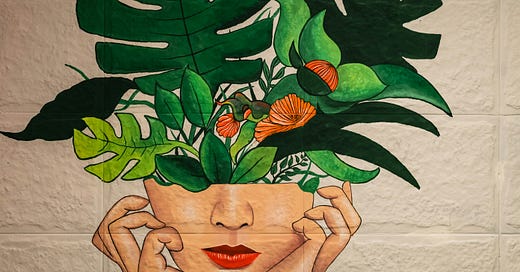People love to believe that intuition is this mysterious, unexplainable gift—something you’re either born with or not. You hear it all the time: “She just has great instincts.” “He’s a natural at making the right call.” But the truth? Intuition isn’t magic. It’s not reserved for the chosen few. It’s a skill. And like any skill, it can be trained and improved.
The best decision-makers don’t just close their eyes, whisper “trust the process,” and hope for the best. They’ve honed their intuition through experience, feedback, and deliberate practice. They don’t have a sixth sense—they have a trained sense. And so can you.
Here’s how to start:
Break your routine and expose yourself to more experiences
Your intuition is only as good as the mental database it pulls from. Think of it like a pattern-recognition machine. It connects dots between what you’ve seen, learned, and experienced over time. But if you keep exposing yourself to the same dots—same routines, same people, same podcasts, same Tuesday night takeout order—your intuition isn’t exactly getting a workout. It’s like expecting to become a Michelin-star chef when all you ever cook is scrambled eggs.
Shake things up. Step into unfamiliar environments. Listen to a podcast on a topic you know nothing about. Talk to people outside your bubble. Read a book that challenges your beliefs. Order the weirdest thing on the menu. Expand the range of patterns your intuition can recognize. The more diverse the dots, the more interesting the connections.
Great intuition isn’t just about trusting yourself—it’s about giving yourself more to trust.
Pay attention to patterns
Intuition is built on the patterns we observe over time, even if we don’t always recognize them consciously. Start paying attention to when your gut was right. What were the circumstances? What signals did you pick up on? Over time, you’ll begin to recognize these patterns and learn to trust your gut when they show up again.
Keep a simple intuition journal—nothing fancy. Just jot down moments when you had a gut feeling, what action (or inaction) you took, and the outcome. Over time, you’ll start seeing patterns. You’ll learn to separate gut instinct (wisdom) from gut reaction (panic). And that’s the key to knowing when to trust it.
Start small
Don’t expect to make huge, life-altering decisions on instinct alone right away. Start with the small stuff. What to eat for lunch? Which route to take to work? Which project should you tackle first? The more you practice trusting your gut on small things, the easier it’ll be when the stakes are higher. Confidence in your intuition comes from experience—so start with the decisions that won’t keep you up at night.
Tune out the noise
One of the biggest mistakes people make is thinking they need more input—more data, more opinions, more time spent analyzing.
We live in a world where you can get 5,000 different opinions on any decision in under five minutes. Want to buy a toaster? Here are 400 conflicting Amazon reviews. Thinking of making a career move? Here’s a Reddit thread telling you it’s both the best and worst decision of your life.
At a certain point, more information doesn’t make you smarter—it just makes you more confused. Often, the best way to sharpen your intuition is to remove the excess. If you’re constantly consuming, constantly asking others what they think, constantly searching for external validation, how can you ever hear your inner voice?
Next time you have a decision to make, resist the urge to poll the entire internet. Sit with your own thoughts first. Ask yourself: What do I already know? What is my gut telling me? Then, and only then, look for external input. Otherwise, you’re just outsourcing your decision-making.
Know when to use intuition vs. analysis
Intuition and logic aren’t enemies—they’re teammates. The best decision-makers know when to lean on one versus the other. If you’re choosing a vacation destination, intuition works. If you’re calculating your company’s financial projections, maybe don’t rely on a gut feeling alone.
Here’s the trick though: Intuition can tell you where to look. It points you to the areas that need deeper analysis. It nudges you toward possibilities your rational brain might not have considered. The goal isn’t to pick either logic or instinct—it’s to get better at knowing when to use each.
Edge Thought of the Week
"A mind that is stretched by a new experience can never go back to its old dimensions." – Oliver Wendell Holmes Jr.
This week, do one thing outside your usual routine. Read a book on a topic you know nothing about. Strike up a conversation with someone whose work has nothing to do with yours. Pick a restaurant without reading reviews first (I know, terrifying).
Because the best leaders, thinkers, and decision-makers aren’t just the ones who know the most. They’re the ones who’ve seen, experienced, and absorbed the most. And the best way to build intuition? Live a life that feeds it.
Until next time,
Laura





Sooo good Laura. The best way to expand your mind is to try new things. What you feed it matters.
This is so good, Laura! Love this piece (and everything you write).